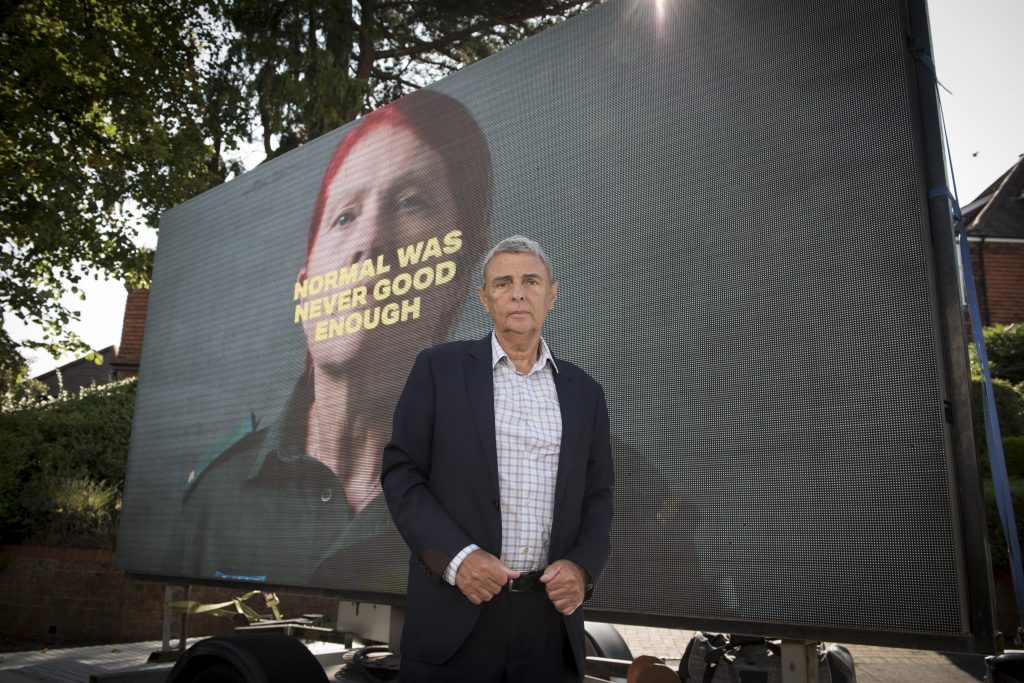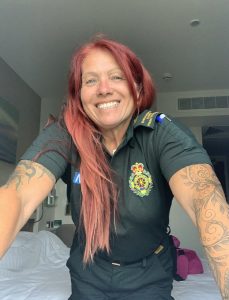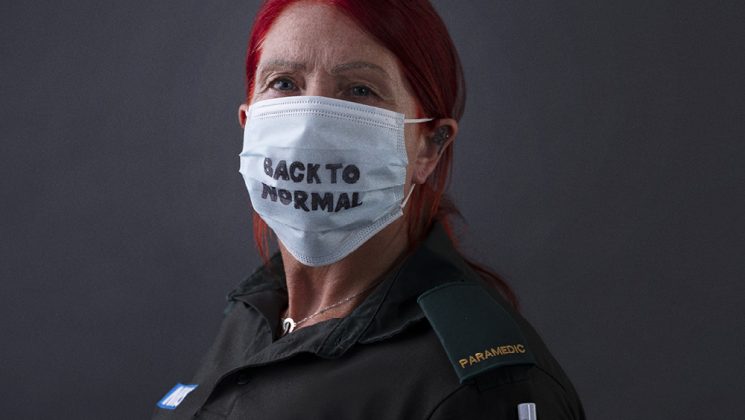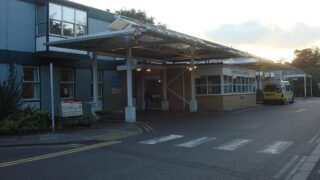Years of underfunding, underinvestment and understaffing left our public services ill-prepared to fight Covid-19.
Public-sector workers, in the NHS, local councils, schools and elsewhere, still pulled together to get us through.
For a few weeks, we stood on doorsteps or hung out of windows to show our appreciation. The Government even joined in. But our keyworkers are already going back to being undervalued.
UNISON won’t accept this. We’ve launched our No Going Back to Normal campaign to say no return to undervaluing public-sector staff or the services they provide.
One of the faces of the campaign is Trish Tippett, a paramedic in the East of England.

UNISON general secretary Dave Prentis launches No Going Back To Normal with a mobile advertisement campaign in north London
With over three decades in the NHS, she’s experienced how undervalued our public services are more than most.
Trish says ambulances are like the “forgotten service — people only remember we’re here when they need us.
“We had a clap every Thursday which was very nice but now we’re right back to being forgotten again.”
Turning to the ‘new normal,’ she says “everything has changed apart from us.”
“People have had to change the way they work, the way they dress, the way they socialise, but we’re dealing with the repercussions of Covid with no extra pay or equipment.
“Our new normal is a lot like the old one.”
A couple of years ago she made the hard decision to move full time to a GP surgery as an emergency care practitioner (ECP), continuing to work as a paramedic on bank.
“I was waiting around for so long to have a decent pay rise that when the ECP job came along it was like dangling a carrot,” she says.
“Ambulance staff do the job for love, not money. But the employers realise this and they take advantage.”
For Trish, that desire to work for the ambulance service came when she was 18.
“My dad had a massive cardiac arrest but there was nothing I could do to save him. Up to then I was set on joining the police but after that I just wanted to be able to help people.
“Then recently during the pandemic, my younger brother suffered a massive cardiac arrest himself – the same thing that killed our dad.
 “My sister-in-law called me and described his symptoms and I was able to recognise what was happening because of my training. Then the paramedics went and were able to save him. He had another cardiac arrest when he got to hospital, but again thanks to the skills and training of the staff there they could save him.
“My sister-in-law called me and described his symptoms and I was able to recognise what was happening because of my training. Then the paramedics went and were able to save him. He had another cardiac arrest when he got to hospital, but again thanks to the skills and training of the staff there they could save him.
“When you see what we do, we deserve so much more — when you’re going ’round saving people’s lives, why are we not worth more?”
“Undervalued is definitely the word I would use for how we feel — the understaffing and underinvestment all matters, but it’s how little we’re valued that hits you in the chest the hardest.
“We’ve got colleagues who have killed themselves, loads with depression or on tablets. People don’t see it.
“We’re undervalued because people think we’re caring and will accept it. But enough is enough and we’re not going to accept it any more.”


